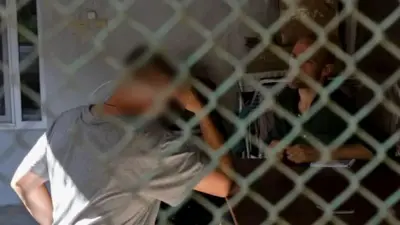We've updated our Privacy and Cookies Policy
We've made some important changes to our Privacy and Cookies Policy and we want you to know what this means for you and your data.
Fire services in England marred by 'toxic culture'
Image source, Getty Images
Top Stories
Fire services in England suffer from a "toxic" culture, with some firefighters not treating colleagues with "enough humanity", a watchdog chief has said.
Inspectors uncovered cases of bullying and harassment at some services, while some staff were said to find the poor treatment of others to be "amusing".
It is the first annual report by Her Majesty's Inspectorate of Constabulary and Fire and Rescue Services.
Its chief inspector, Sir Thomas Winsor, called for a new code of ethics.
He also urged building owners to remove cladding similar to that used on Grenfell Tower, to help avoid another blaze.
Top Stories
'Left in tears'
Sir Thomas highlighted in his report a staff survey that found 24% reported feeling bullied or harassed at work in the past 12 months, with the number rising to 46% at one service.
He said inspectors had heard allegations of unlawful discrimination and that some services lacked defined values for people to follow and use to challenge unacceptable behaviour.
"The fire sector refers to itself as humanitarian, yet firefighters in some services don't treat their colleagues with enough humanity," he wrote in his report.
While the inspectorate said in a briefing with journalists that the problems were found within "isolated pockets" of services, it said it had spoken with female firefighters left "in tears" when discussing intimidating behaviour by colleagues and a "lack of inclusivity".
Top Stories
Also in his report, Sir Thomas said it was "alarming" that, more than two years after the Grenfell fire in which 72 people died, more than 300 buildings still had the same cladding as the tower.
"Remedial work to remove similar cladding systems, including rainscreens with polyethylene cores, should be done by the building owners as quickly as possible," Sir Thomas said.
"No other fire service should have to tackle a blaze of such severity because of these unsafe materials."
The , published in October, found Grenfell Tower's cladding did not comply with building regulations and was the "principal" reason for the fire's rapid spread.
'Interfering in operational matters'
Elsewhere, Sir Thomas accused the Fire Brigades Union of putting the public at risk.
He gave the example of staff in Greater Manchester refusing to serve in a team formed to respond to terrorist gun attacks because of a pay dispute.
Sir Thomas said the FBU had used its "considerable industrial muscle" to demand more money for firefighters required to provide medical assistance alongside ambulance crews.
"The union shouldn't be interfering in operational matters", he said. "They're there to protect their members' interests, to ensure that they're properly paid, their working terms and conditions."
In a statement, the FBU said: " We utterly refute any suggestion that we have put the public at risk. Operational fire service matters are intrinsically linked to the health and safety of firefighters, and are therefore at the core of our work as a union."
It added: "Firefighters know best about their service and should have a strong voice in how it is run."
Top Stories
More to explore
Most read
Content is not available








